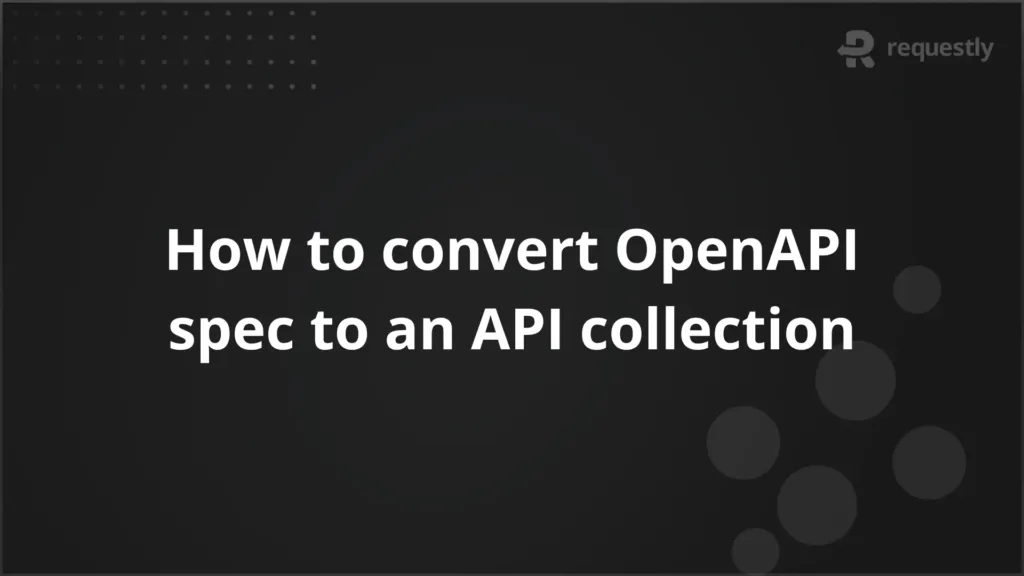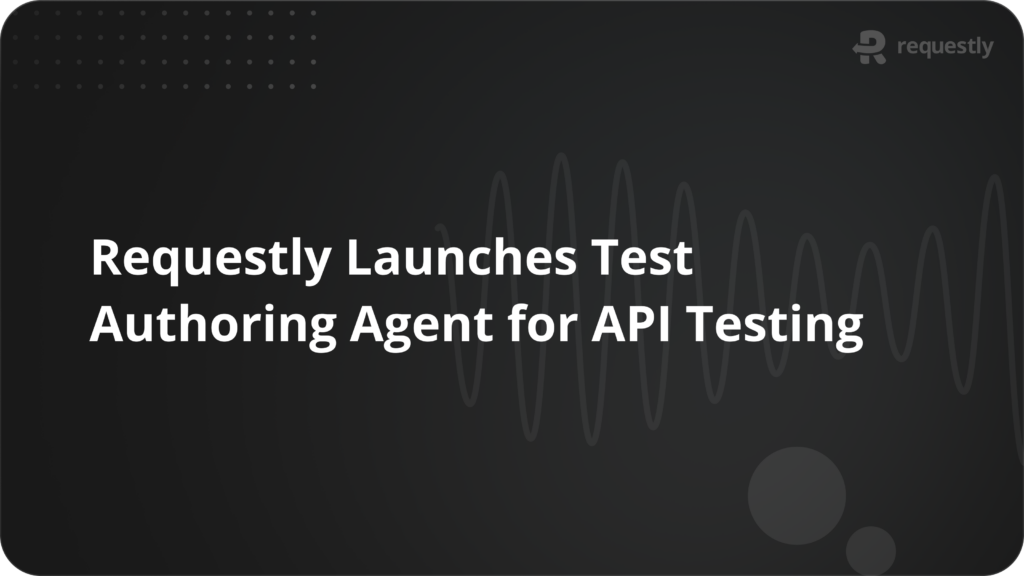Best Tools for GraphQL Development in 2025
Your lightweight Client for API debugging
No Login Required
Requestly is a web proxy that requires a desktop and desktop browser.
Enter your email below to receive the download link. Give it a try next time you’re on your PC!










GraphQL has rapidly gained popularity in recent years as a powerful alternative to REST, offering more flexibility in querying APIs. This article explores the best tools for GraphQL you can use in your workflow to build, test, and debug your APIs.
API Clients
API clients help developers explore GraphQL schemas, test queries, and debug APIs efficiently. Here are some of the best GraphQL API clients:
Altair GraphQL Client
Altair is a feature-rich GraphQL client designed for testing, debugging, and managing GraphQL queries.
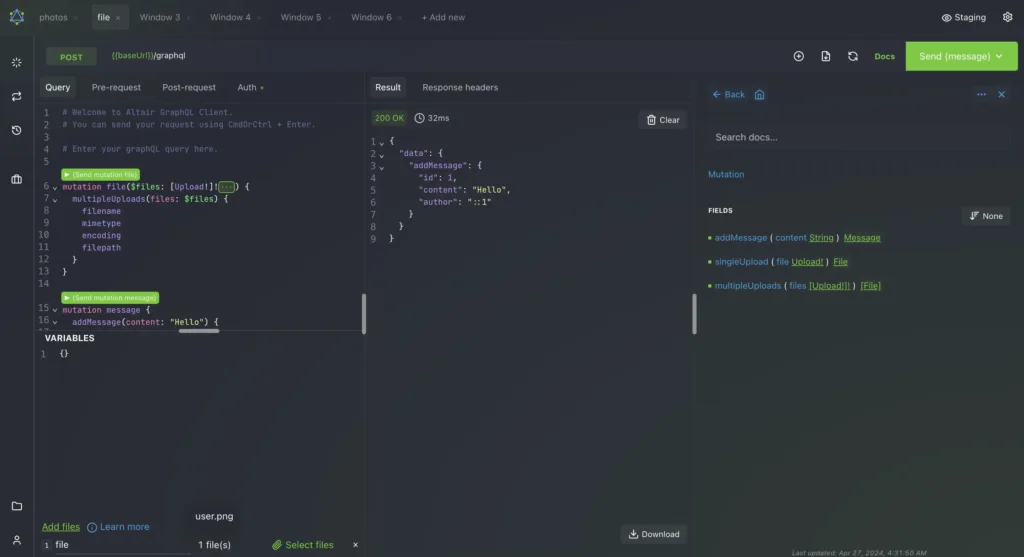
- Multi-tab interface for running multiple queries
- Supports custom headers and authentication tokens
- Query history, environment variables, and file uploads
- User-friendly and powerful features
- Available as a browser extension and standalone app
- Supports GraphQL subscriptions
- Can feel overwhelming for beginners
- Some advanced features require manual setup
Postman
Postman is a well-known API testing tool that supports GraphQL queries along with REST and other API types.
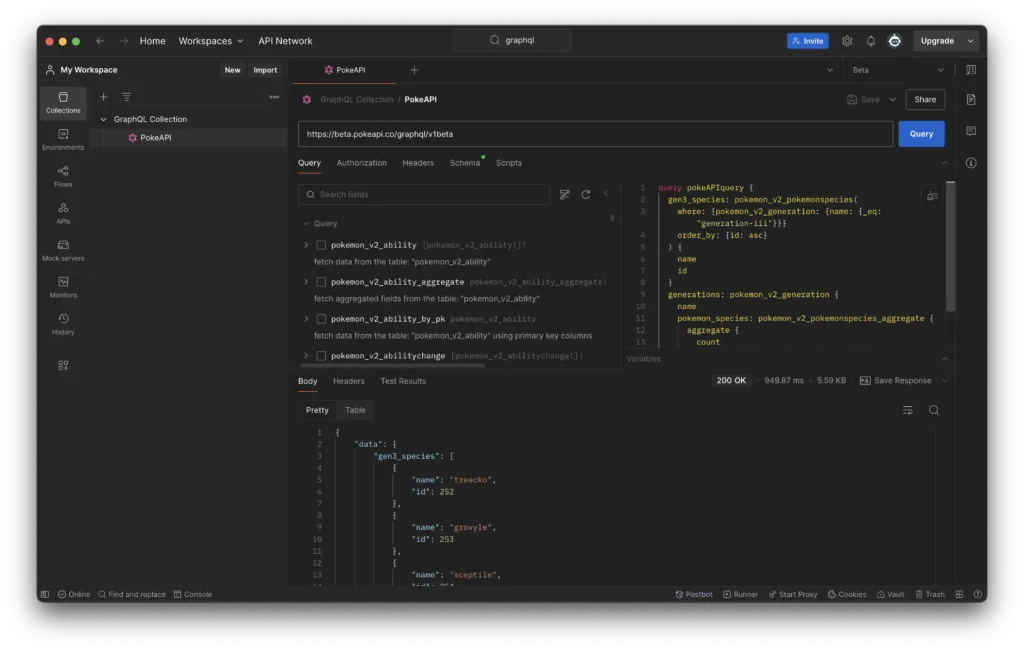
- GraphQL query execution with schema introspection
- Supports authentication, headers, and variables
- API collections for managing multiple requests
- Great for teams working with multiple API types
- Well-integrated with CI/CD pipelines
- Supports automation and scripting
- Doesn’t support multi-step (chained) requests.
- Heavier compared to lightweight GraphQL clients
Insomnia
Insomnia is a powerful API client that provides a clean UI for testing GraphQL queries and managing API requests.
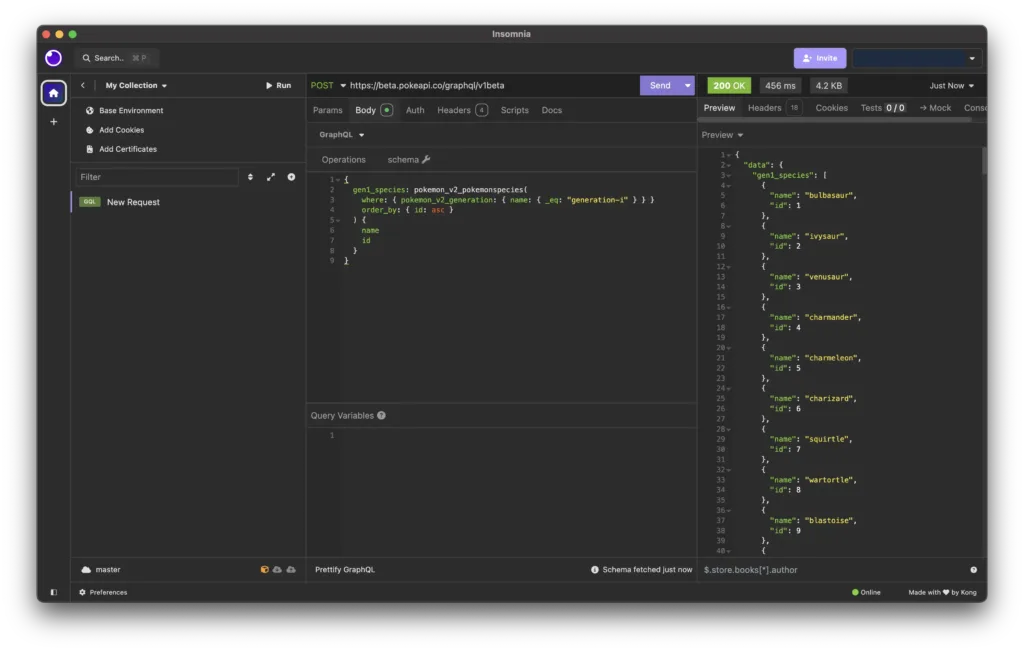
- GraphQL query execution with auto-completion
- Environment variables and request chaining
- Built-in authentication support (OAuth, JWT, etc.)
- Lightweight and easy to use
- Supports GraphQL introspection and schema exploration
- Good for API testing and automation
- Lacks some advanced debugging features
- No built-in support for GraphQL subscriptions
Testing Tools
Mock servers and testing tools help developers simulate GraphQL APIs, test different scenarios, and validate API responses without needing a fully functional backend. Here are some of the best tools for mocking and testing GraphQL APIs:
Requestly
Requestly is a powerful tool for modifying GraphQL responses, intercepting requests, and debugging API interactions. It allows developers to tweak request bodies, capture GraphQL traffic, and share sessions for easier debugging and collaboration.
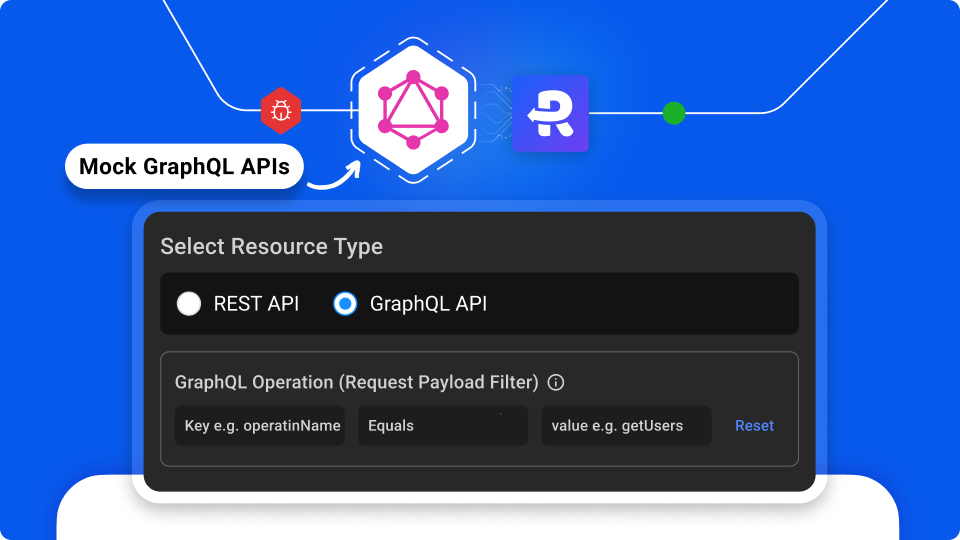
- Modify GraphQL responses in real time
- Edit request bodies to test different scenarios
- Capture and inspect GraphQL requests for debugging
- Share captured API sessions with teammates
- Useful for testing API changes without modifying backend code
- Helps debug GraphQL issues quickly by capturing real API traffic
- Supports sharing sessions for collaborative debugging
- Requires setup within the browser or as an extension
- Primarily focused on debugging rather than long-term monitoring
Apollo Server
Apollo Server is a popular GraphQL server that includes built-in schema mocking, making it easy to test GraphQL APIs without a real database.
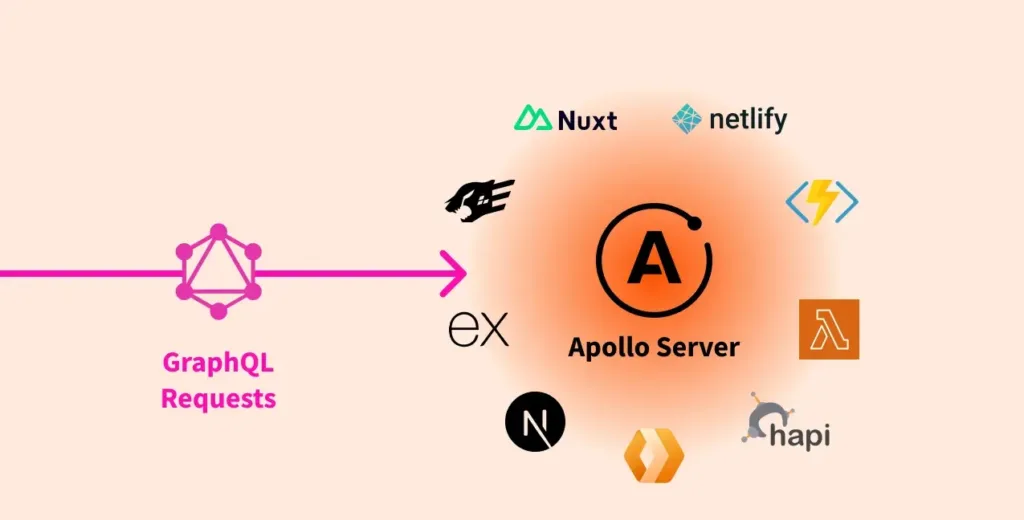
- Built-in schema mocking for fast prototyping
- Supports REST, databases, and other data sources
- Caching, subscriptions, and federation support
- Easy to set up and configure
- Works seamlessly with Apollo Client and other tools
- Scalable and production-ready
- Can be overkill for simple mock APIs
- Requires configuration for advanced mocking scenarios
GraphQL Faker
GraphQL Faker is a tool for generating mock GraphQL APIs with fake data, helping developers prototype and test APIs without a backend.
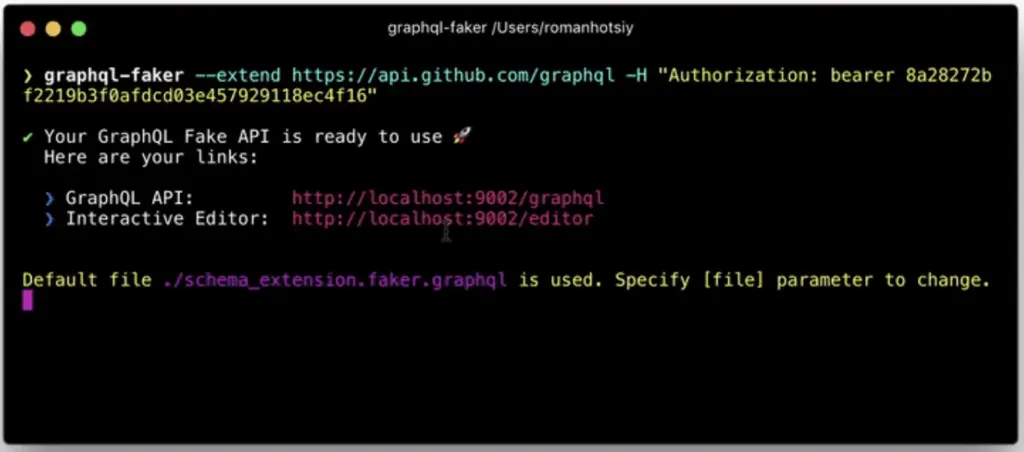
- Generate realistic fake data using Faker.js
- Define a GraphQL schema and instantly create a mock API
- Supports real-time schema changes
- No need for a real backend to test queries
- Helps quickly prototype GraphQL APIs
- Customizable mock data generation
- Limited to mocking; not a full GraphQL server
- Requires manual schema setup for complex APIs
Mock Service Worker (MSW)
Mock Service Worker (MSW) is a request interception library that allows developers to mock GraphQL and REST API responses at the network level.
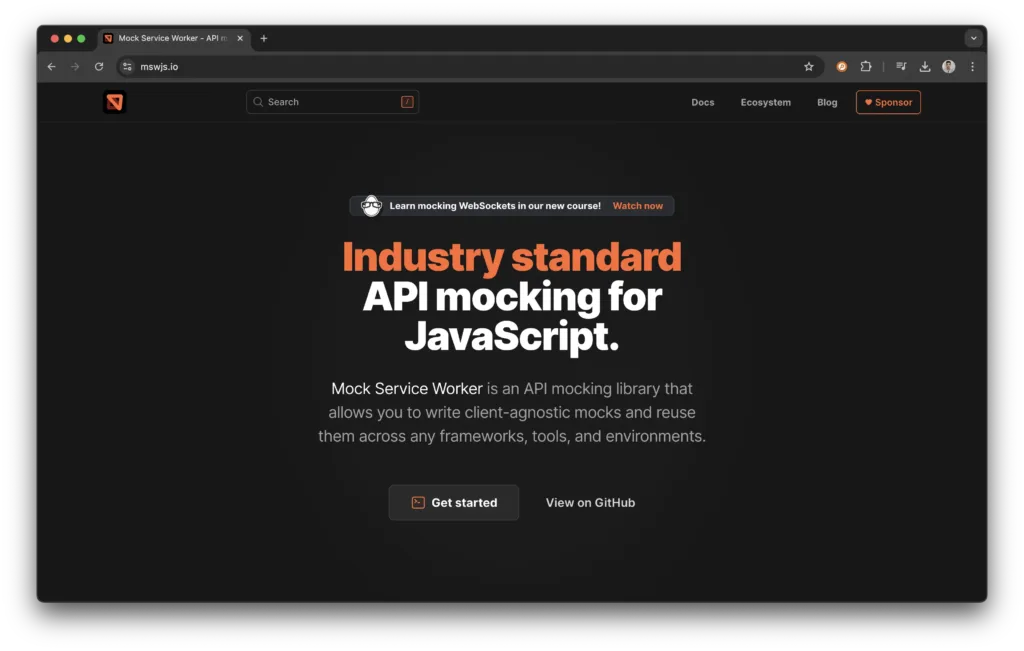
- Intercepts and mocks API requests in both browser and Node.js environments
- Supports GraphQL queries and mutations
- Works with Playwright, Cypress, and Jest for frontend testing
- Great for frontend developers testing GraphQL APIs
- Works at the network level, simulating real API behavior
- Lightweight and easy to integrate into projects
- Requires initial setup for complex APIs
- Not a full-fledged GraphQL mock server
Design & Documentation Tools
Schema design and documentation tools help developers visualize, create, and maintain GraphQL schemas efficiently. These tools make it easier to understand API structures, collaborate with teams, and ensure consistency.
GraphQL Voyager
GraphQL Voyager is a powerful visualization tool that turns GraphQL schemas into an interactive graph, making it easy to explore relationships between types.
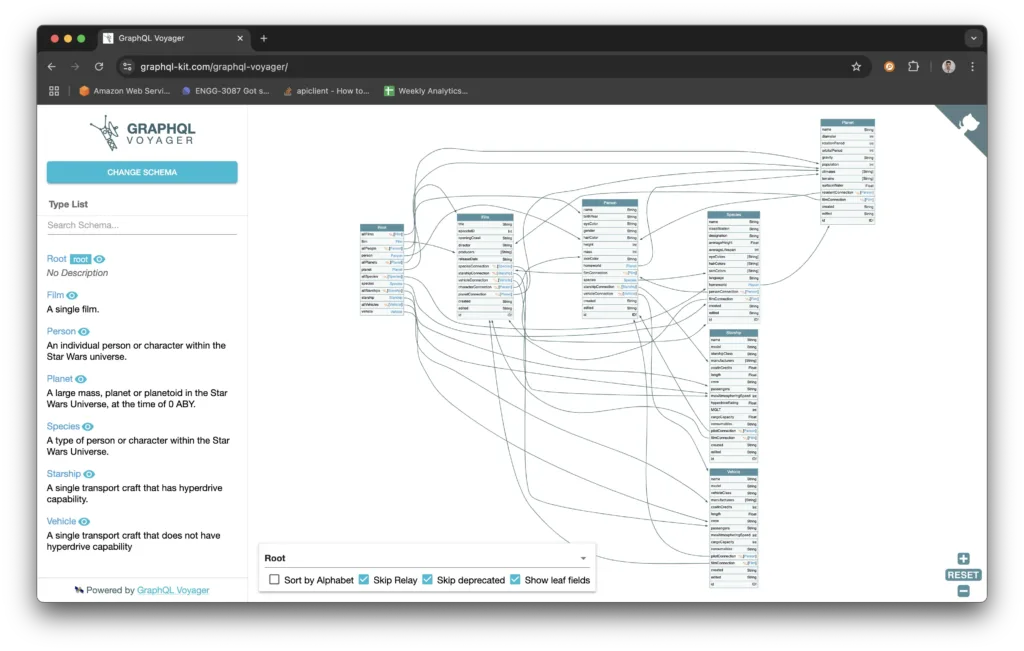
- Automatically generates an interactive schema graph
- Provides a visual representation of queries, mutations, and relationships
- Supports schema introspection from live GraphQL APIs
- Great for understanding complex schemas
- No setup required; works with any GraphQL API
- Helps visualize data flow and dependencies
- Read-only; does not support schema editing
- Can be slow for very large schemas
GraphQL Editor
GraphQL Editor is a visual tool that allows developers to design, prototype, and visualize GraphQL schemas using a drag-and-drop interface.
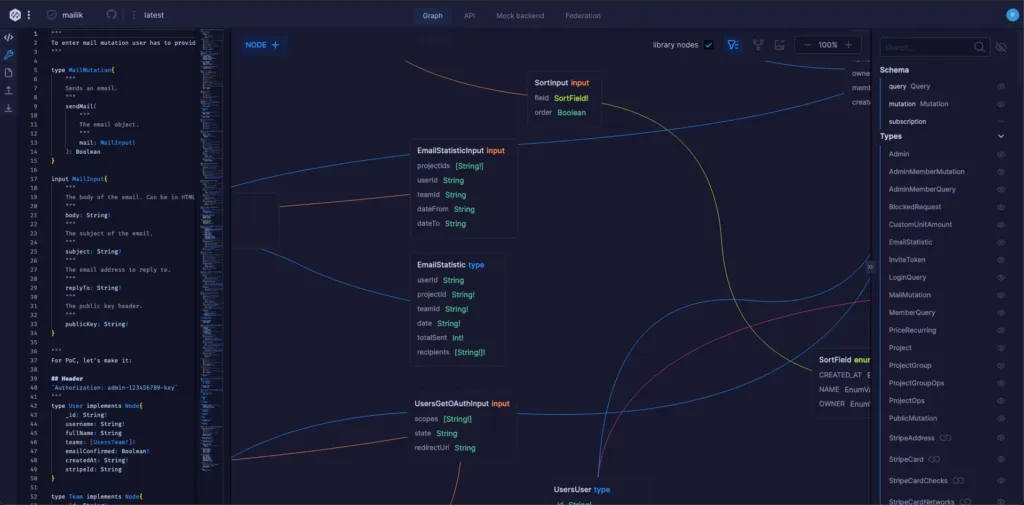
- Drag-and-drop schema design
- Interactive visualization of GraphQL APIs
- Supports real-time schema collaboration
- No coding required for schema design
- Helps teams collaborate on API structure
- Provides a real-time preview of changes
- Requires manual export to use schemas in production
- Some features are locked behind a paid plan
Apollo Studio
Apollo Studio is a complete GraphQL management platform that offers schema visualization, API documentation, and performance insights.
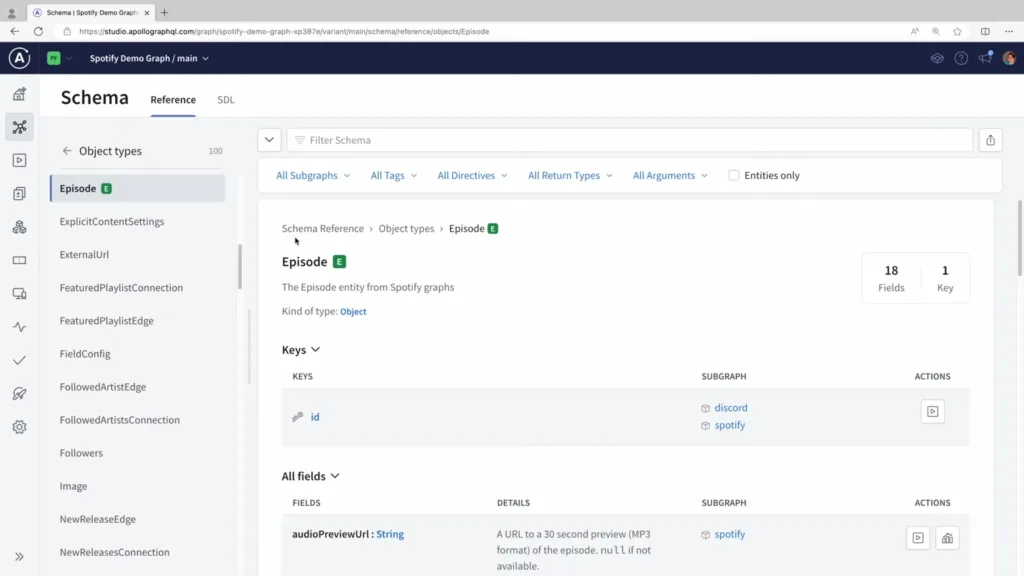
- Schema registry with version tracking
- Interactive documentation for API consumers
- Performance analytics and query insights
- Helps teams manage schema changes over time
- Provides real-time API usage monitoring
- Supports collaboration with multiple team members
- Requires an Apollo account
- Some advanced features require a paid subscription
SpectaQL
SpectaQL is an open-source tool that automatically generates static GraphQL API documentation from a schema.
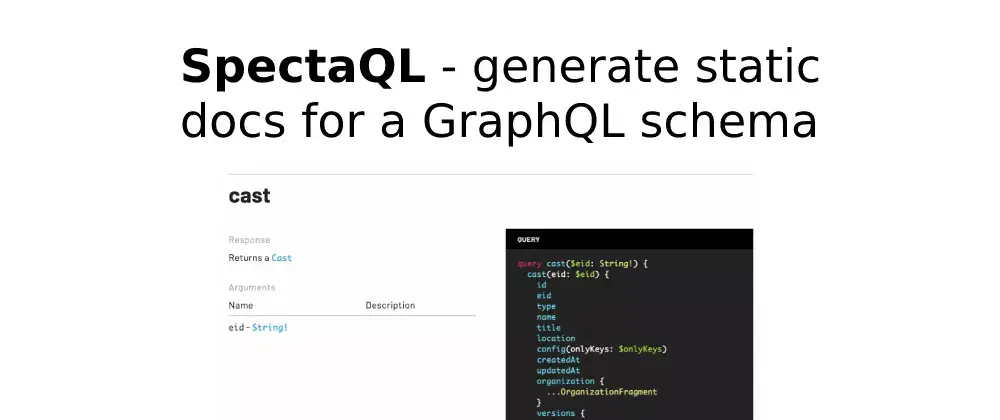
- Generates clean and readable API documentation
- Supports custom themes and layouts
- Can be used in CI/CD pipelines for automated docs
- Fully open-source and customizable
- No external dependencies; runs locally
- Great for self-hosted documentation
- No real-time interactivity like Apollo Studio
- Requires manual updates for schema changes
Monitoring & Security Tools
Monitoring and security tools help ensure the performance, reliability, and safety of GraphQL APIs. These tools assist in tracking API usage, detecting vulnerabilities, and enforcing security best practices.
GraphQL Armor
GraphQL Armor is a middleware that helps protect GraphQL APIs from common security vulnerabilities.
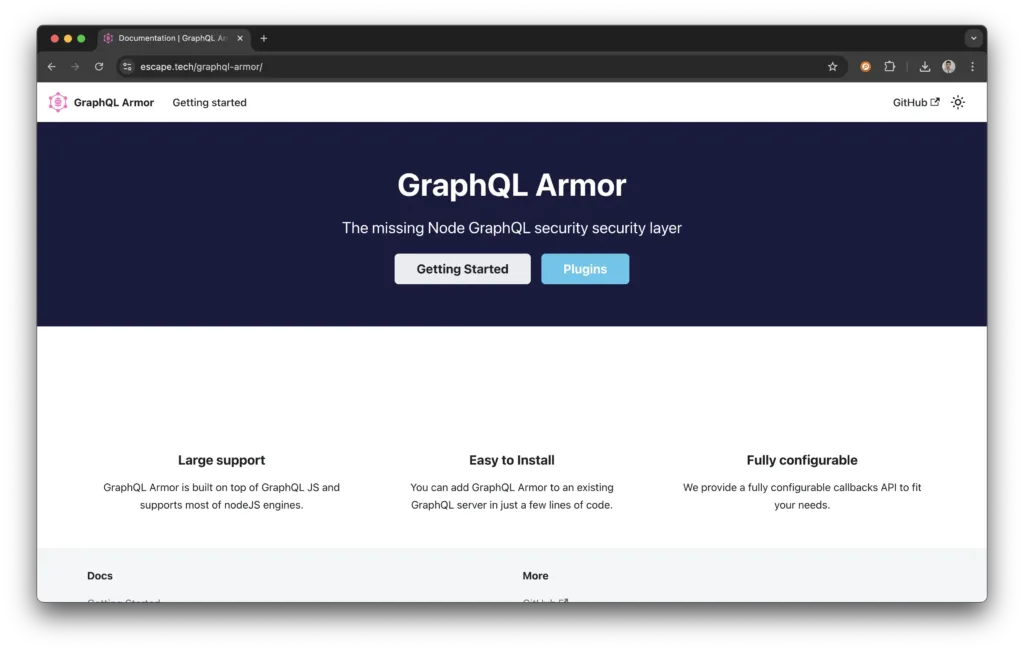
- Blocks malicious queries such as deep recursion and introspection abuse
- Limits query complexity and depth to prevent API overloading
- Prevents brute-force attacks and unauthorized schema access
- Lightweight and easy to integrate into GraphQL servers
- Helps prevent denial-of-service (DoS) attacks
- Works with Apollo Server, Express, and other GraphQL frameworks
- Requires configuration for optimal security
- Does not provide real-time monitoring
Escape.tech GraphQL Security
Escape.tech GraphQL Security is a security-focused tool that scans GraphQL APIs for vulnerabilities and provides recommendations for hardening endpoints.
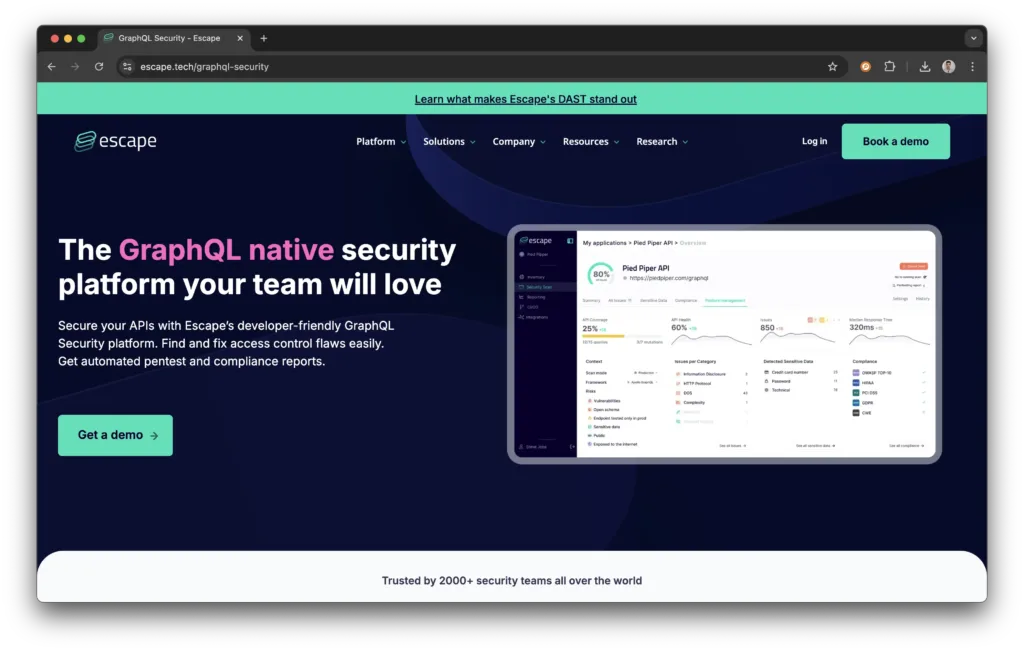
- Automated vulnerability scanning for GraphQL APIs
- Detects common security risks such as introspection leaks and overly permissive queries
- Provides actionable security recommendations
- Helps prevent unauthorized access and data leaks
- Easy to integrate into CI/CD pipelines
- Continuously updated to detect emerging threats
- Some features require a paid plan
- Focuses mainly on security, not performance monitoring
Grafbase
Grafbase is a GraphQL observability tool that provides real-time performance insights and debugging capabilities.
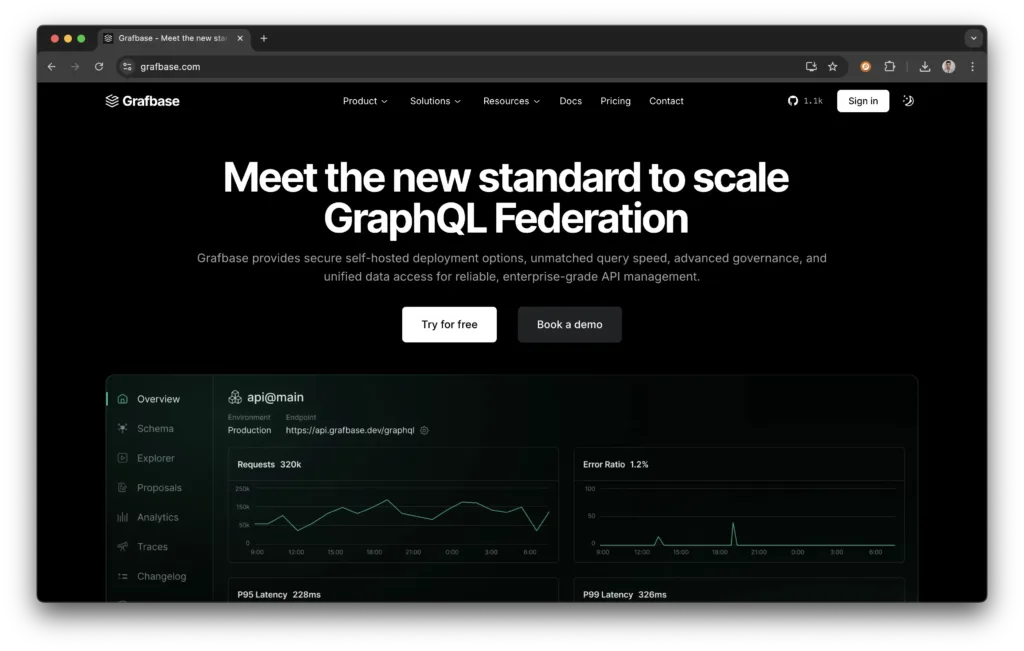
- Tracks API response times and query execution performance
- Identifies slow queries and performance bottlenecks
- Supports distributed tracing for microservices
- Helps optimize GraphQL API performance
- Supports real-time query analysis
- Works well in cloud-based and microservice architectures
- Requires integration with existing monitoring stacks
- Limited security-focused features
Conclusion
GraphQL development requires the right tools to simplify querying, testing, monitoring, and security. From API clients to mock servers and schema design tools, each plays a role in improving the development process. Choosing the right tools based on your project needs can help you work more efficiently and build better APIs.
Contents
Subscribe for latest updates
Share this article
Related posts
Get started today
Requestly is a web proxy that requires a desktop and desktop browser.
Enter your email below to receive the download link. Give it a try next time you’re on your PC!


















